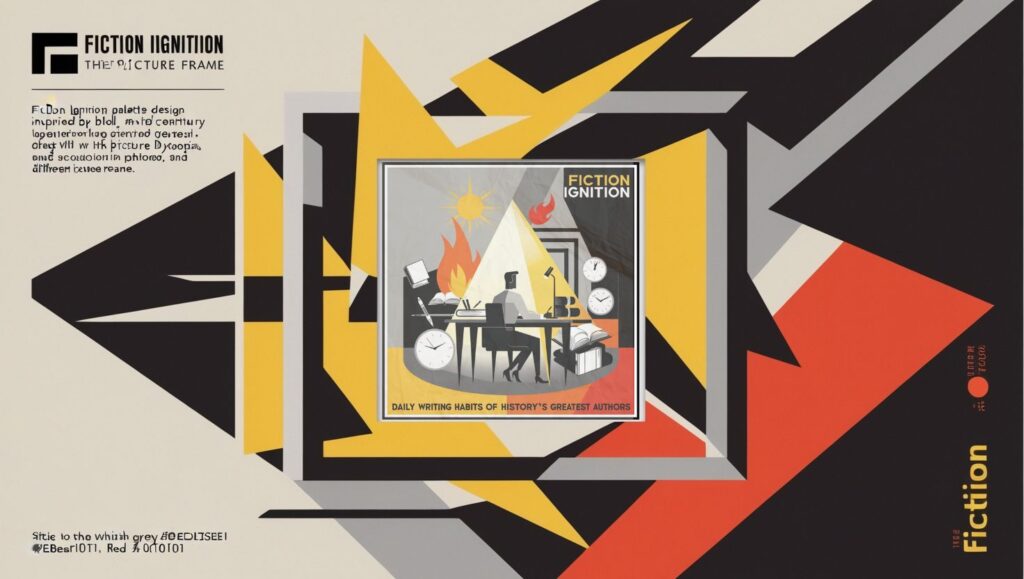Hey there, my wordsmith warriors! Let’s talk about something every writer faces when they first pick up the pen—or open a blank Google Doc. Mistakes. Oh, yes, the lovable, cringe-worthy mistakes we all make when starting out. But don’t worry—The Flamekeeper is here to light your way, so you can sidestep these newbie pitfalls and set your stories on fire (in the good way).
Pull up a chair, grab a coffee, and let me walk you through these ten all-too-common blunders. I’ve made a lot of them myself, and trust me, we’re about to get real cozy with honesty.
1. Trying to Sound “Literary” Instead of Authentic
New writers often believe they need to channel their inner Shakespeare. Cue lines like, “Lo! The incandescent moonlight danced upon her pallid visage.” Dude, just say her face looked pale in the moonlight!
Famous Example: George Orwell nailed it when he said, “Good prose is like a windowpane.” Look at 1984. The prose is clean, sharp, and deadly—no fluff, just impact.
Avoid It: Write like you speak. If it feels like you’re trying too hard, you probably are. Let authenticity lead, and clarity will follow.
2. Skipping the Planning Phase
Ah, the temptation of pantsing—writing by the seat of your pants. I get it. Outlining sounds as exciting as watching paint dry. But trust me, aimlessly wandering through your plot is like walking through a maze blindfolded.
Famous Example: J.K. Rowling spent years mapping out the Harry Potter series before writing a single book. That’s why even a throwaway detail in Book 1 (remember the vanishing cabinet?) becomes crucial later.
Avoid It: Start small. Even a one-page bullet-point list of plot beats can be your guiding star.
3. Writing Just to Impress Instead of to Connect
Here’s a spicy truth: Nobody cares how many SAT words you know. Readers want to feel something, not flip to a dictionary every five seconds.
My Personal Oops: I once used the word “palimpsest” in a short story. A friend said, “Great story, but what the heck is a palimpsest?” Lesson learned.
Avoid It: Ask yourself: Is this line for me or my reader? Write for the heart, not the ego.
4. Neglecting the Basics of Story Structure
Your story can be brilliant, but if it meanders aimlessly, readers will check out faster than you can say “prologue.” Every great story—from The Lord of the Rings to Breaking Bad—follows some form of structure.
Famous Example: The Hero’s Journey in The Hobbit is a masterclass in pacing and structure. Bilbo grows, struggles, and triumphs, all within a perfectly crafted arc.
Avoid It: Learn the basics of structure, like the three-act model or the Hero’s Journey. Don’t let it box you in, but use it as a framework.
5. Overloading the First Chapter
Oh, the dreaded “info dump.” New writers often try to cram their entire world’s history into the opening chapter. Newsflash: Readers don’t need to know about King Argharoth’s 57-year reign right now.
Famous Example: Look at The Hunger Games. Suzanne Collins doesn’t bog us down with the history of Panem in Chapter 1. She sprinkles details throughout the story.
Avoid It: Start with the action. Drop us into the scene and let the backstory trickle in naturally.
6. Being a Lone Wolf
Here’s a tough pill to swallow: Writing in a vacuum doesn’t work. When I first started, I was too scared to share my stories. Big mistake. Feedback is a writer’s secret weapon.
Avoid It: Find a critique group, join a workshop, or even share your work with a trusted friend. Listen, grow, and repeat.
7. Fearing Revisions Like the Plague
Rewriting isn’t just part of the process—it is the process. My first drafts? Hot garbage. Stephen King famously says, “Write with the door closed, rewrite with the door open.”
Avoid It: Let your first draft be messy. Embrace revisions. It’s where the magic happens.
8. Giving Up Too Soon
It’s easy to get discouraged. I once trashed a story because it wasn’t coming together fast enough. Big mistake.
Famous Example: Did you know Carrie by Stephen King almost didn’t happen? He threw the manuscript in the trash! His wife, Tabitha, rescued it and encouraged him to finish.
Avoid It: Remember, every great writer has doubted themselves. Push through. Persistence beats talent every time.
9. Chasing Trends Instead of Passion
Vampires are hot this year, so you write a vampire story. But guess what? Trends die faster than you can publish.
Famous Example: George R.R. Martin didn’t write A Song of Ice and Fire because fantasy was trending. He wrote it because he was passionate about dragons, politics, and bloody betrayals.
Avoid It: Write what excites you. Trends are temporary; passion is eternal.
10. Waiting for the Perfect Moment to Start
Spoiler alert: There’s no such thing as the perfect moment. Life is messy, schedules are packed, and excuses are endless.
Avoid It: Start now. Even if it’s just 100 words a day. Those words add up faster than you think.
Final Thoughts
My Literary Pyromaniacs, mistakes are part of the journey, but they don’t have to define it. Writing is about learning, growing, and setting your imagination ablaze. So, go out there and create stories that ignite the world. And remember: Don’t write, ignite!





